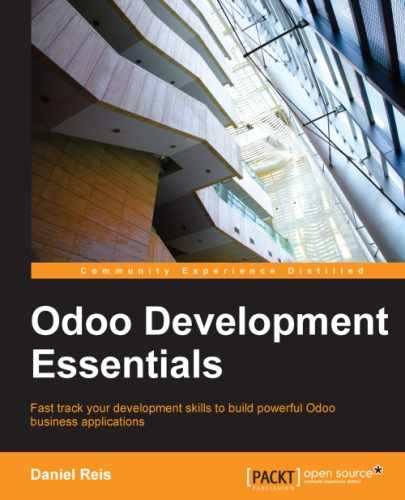To enforce data integrity, models also support two types of constraints: SQL and Python.
SQL constraints are added to the table definition in the database and implemented by PostgreSQL. They are defined using the class attribute _sql_constraints. It is a list of tuples with the constraint identifier name, the SQL for the constraint, and the error message to use.
A common use case is to add unique constraints to models. Suppose we didn't want to allow the same user to have two active tasks with the same title:
# class TodoTask(models.Model):
_sql_constraints = [
('todo_task_name_uniq',
'UNIQUE (name, user_id, active)',
'Task title must be unique!')]Since we are using the user_id field added by the todo_user module, this dependency should be added to the depends key of the __openerp__.py manifest file.
Python constraints can use a piece of arbitrary code to check conditions. The checking function needs to be decorated with @api.constrains indicating the list of fields involved in the check. The validation is triggered when any of them is modified, and will raise an exception if the condition fails:
from openerp.exceptions import ValidationError
# class TodoTask(models.Model):
@api.one
@api.constrains('name')
def _check_name_size(self):
if len(self.name) < 5:
raise ValidationError('Must have 5 chars!')The preceding example prevents saving task titles with less than 5 characters.
